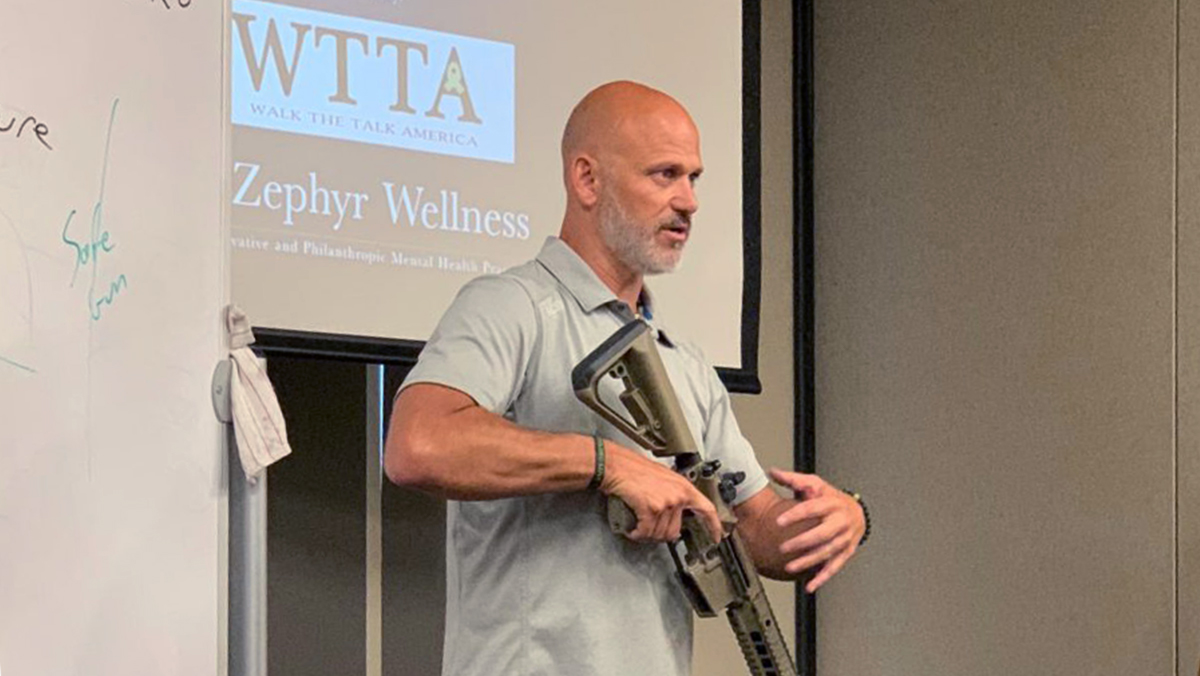Cultural Competence Classes
Through this partnership, we have created multiple cultural competence classes that are available for free!

What makes our classes unique?
We have recently seen similar educational classes pop up. However, most of these classes are from the perspective of healthcare professionals or researchers. Walk the Talk America’s courses are taught by gun-owning mental health professionals who understand both worlds that have historically been kept apart by misleading information. Our classes allow mental health professionals to come into a relaxed environment to better understand “gun culture.” This is important, given how many citizens own or work with firearms.
In our class, clinicians will better understand gun owners’ fears, which will help them shape their approach and language when discussing firearms ownership. Many students in our classes were unaware that firearm owners fear confiding with a therapist about their gun ownership. The common narrative was that clinicians could confiscate your firearms if you confided that you might be struggling with your mental health. In most states, this is simply not true. Many people avoid seeking help because of this belief, which in some cases, could lead to a mental health crisis that could be deadly. When gun owners feel comfortable that their therapist is Gun Culture friendly, they may be more apt to get help. See testimonials.
Many people don’t have an issue with guns. They just aren’t firearm literate. These classes allow us to come together and talk about it while learning. Shooting a firearm is an essential method by which clinicians can better understand gun culture. The advanced class allows attendees to go through the process with highly qualified professional firearms instructors who will teach that. Whether this is your first time shooting or you have been doing it your whole life, attendees will leave the range to debrief their experience with WTTA members, who will help them process the emotions and beliefs associated with it. At the end, a group discussion will center on ethics, policies, and intervention strategies for crisis and non-crisis clinical situations and how to apply this range experience in those situations. Participants get answers to basic questions like “Why does someone need to own more than one gun?” or “What is the controversy surrounding the AR-15?” Many fear asking these questions about firearms owners because it’s an emotionally charged subject.
Our classes are designed to help mental health professionals better understand the gun-owning community. There are many different types of gun owners in this country, and these classes present all the nuances of firearms ownership. Whether the clinician decides to reexamine their approach to tackling this subject with their patients, they will better understand “gun culture.”
What You’ll Learn
- Statistics on firearm suicides
- Myths and stigmas surrounding gun ownership
- Firearms Culture in America
- Function, handling, use, and safe storage of firearms
- Live-fire experience on the range
- Plus, earn 3 CEU credits toward your profession
Roughly 42% of Americans, on average, either own a firearm or live with someone who does,1 meaning that almost half of the clientele who will ever enter counseling have a gun at home. With firearm suicides on the rise,2 mental health practitioners should become fluent in having conversations with gun owners during their mental health struggles and those involving children of parents who own guns.
1. Ruth Igielnik and Anna Brown, Key takeaways on Americans’ views of guns and gun ownership (Pew Research Center, 2017), https://www.pewresearch.org/fact-tank/2017/06/22/key-takeaways-on-americans-views-of-guns-and-gun-ownership.
2. Centers for Disease Control and Prevention, “Increase in Suicide Mortality in the United States, 1999–2018,” https://www.cdc.gov/nchs/products/databriefs/db362.htm.
